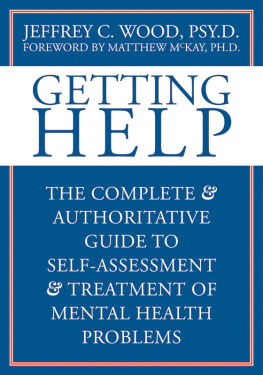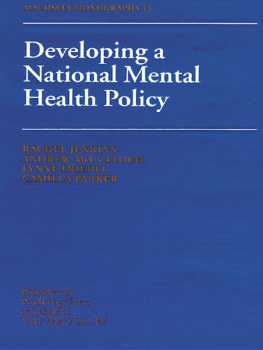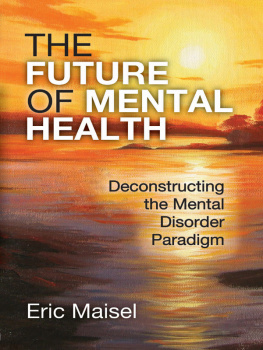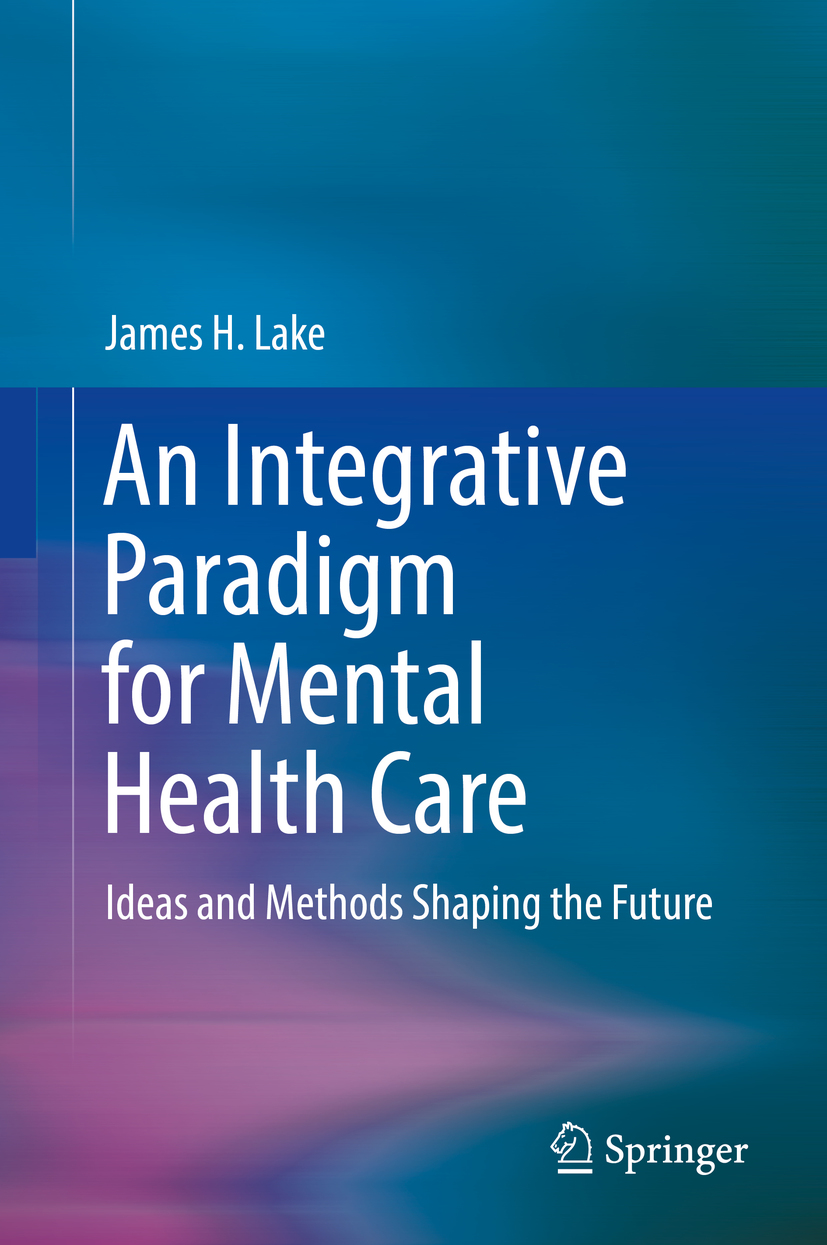James H. Lake
Center for Integrative Medicine, University of Arizona College of Medicine, Tucson, AZ, USA
ISBN 978-3-030-15284-0 e-ISBN 978-3-030-15285-7
https://doi.org/10.1007/978-3-030-15285-7
Library of Congress Control Number: 2019935804
Springer Nature Switzerland AG 2019
This work is subject to copyright. All rights are reserved by the Publisher, whether the whole or part of the material is concerned, specifically the rights of translation, reprinting, reuse of illustrations, recitation, broadcasting, reproduction on microfilms or in any other physical way, and transmission or information storage and retrieval, electronic adaptation, computer software, or by similar or dissimilar methodology now known or hereafter developed.
The use of general descriptive names, registered names, trademarks, service marks, etc. in this publication does not imply, even in the absence of a specific statement, that such names are exempt from the relevant protective laws and regulations and therefore free for general use.
The publisher, the authors, and the editors are safe to assume that the advice and information in this book are believed to be true and accurate at the date of publication. Neither the publisher nor the authors or the editors give a warranty, express or implied, with respect to the material contained herein or for any errors or omissions that may have been made. The publisher remains neutral with regard to jurisdictional claims in published maps and institutional affiliations.
This Springer imprint is published by the registered company Springer Nature Switzerland AG
The registered company address is: Gewerbestrasse 11, 6330 Cham, Switzerland
Foreword
When it comes to mental health, modern medicine has painted itself into a rather awkward corner. It has done this by focusing so exclusively on the physical aspects of our mental and behavioral health issues that it has devalued and, in some cases, denied adequate treatment for humankinds emotional and social dimensions.
This devaluation of the mind and emotions has a number of unfortunate consequences. First, the treatment of mental illness itself is inadequate. A recent Harris Poll showed, for example, that depression and anxiety, which are some of the most prevalent conditions in the country, are rarely addressed in primary carewhere they usually present (Devitt, 2018). Only a third of primary care providers have even discussed mental health issues with their patients. Therapeutic approaches that do not involve physical manipulation of the brain such as psychotherapy or cognitive behavioral therapy (CBT) are often restricted or even denied, whereas drug treatments will be paid for even beyond the period for which they have been shown to be effective. Proven self-care and complementary approaches are almost completely neglected. For example, the military patient population that I work with suffers from high rates of post-traumatic stress disorder (PTSD). But the only approved approaches for PTSD are medications and professionally supervised trauma exposure therapy. This is despite multiple non-drug and self-care approaches that have been shown to be effective in this condition, such as acupuncture and meditation (Engel et al., 2014; Hollifield, Sinclair-Lian, Warner, & Hammerschlag, 2007; Lake, 2015; Nidich et al., 2018).
A second consequence of this denial of the social and emotional dimensions of a human being is our failure to recognize the importance of mental treatments for physical conditions. Stress management training and support is not routinely provided for conditions such as cardiovascular disease, diabetes, chronic pain, or cancer even when they are known to be of value. In addition, the major impact of early childhood traumas and adverse experiences is largely neglected even when they perpetuate both physical and mental illness over decades of life.
A third consequence of our failure to recognize the importance of the social and emotional as well as the mental and spiritual dimensions of the human being is a neglect of the behavioral and social determinants of health. Even if a patient does not have a diagnosable mental illness, behavioral components are a major aspect of their ability to get well and stay well. This neglect occurs even though the behavioral and social determinants contribute to 80% of population health and behavioral health embedded in primary care has been repeatedly proven to reduce costs, improve outcomes, and increase satisfaction with care (Jonas, 2018).
The public also suffers from these myths about mental health being derived only from the physical dimensions of a human being. Phrases such as its all in your head or my disease is real result from a stigma around mental and emotional experiences as being not real. This results in patients not seeking out mental health care even when its available. Nearly 75% of depression is seen in primary care, for example, but often presents as another condition or is missed. Patients will refuse to go to a mental health clinic or see a psychiatrist because of this stigma or disbelief in the value and importance of treating their mind and emotions.
The fundamental neglect of the mental and emotional dimensions of a human being leads to multiple problems in our health care system including lack of access to mental health services, neglect of proven self-care, and non-pharmacological approaches to health, both mental and physical. These approaches become sidelined by using terms such as complementary and alternative medicine (CAM ), meaning optional and on the sidelines, or nothing but placebo , meaning not real when they are, in fact, at the core of healing.
Dr. James Lake is a psychiatrist who has for many decades been filling these gaps. And with this book, An Integrative Paradigm for Mental Health Care: Ideas and Methods Shaping the Future , he continues to do so in a most eloquent way. As one of the founders of the American Psychiatric Associations caucus on complementary and integrative medicine, Dr. Lake has influenced the professional dialogue on the importance of the social and emotional dimensions of human life for health and well-being. He has been a staff psychiatrist serving our veterans and so is well-versed on what happens on the front lines of health care when we either neglect or fail to provide whole-person mental health care.
This book starts where we all must if we are to provide solutions to the challenges just described. It first lays out the conceptual foundations and methods for a more integrative paradigm in mental health care. Once this is explained, it then proceeds to provide practical tools for addressing those challenges. It is grounded in science yet easily accessible. Based on years of practice and research, the writing is elegant, balanced, evidence-based, and easy to understand both for professionals and the public.










